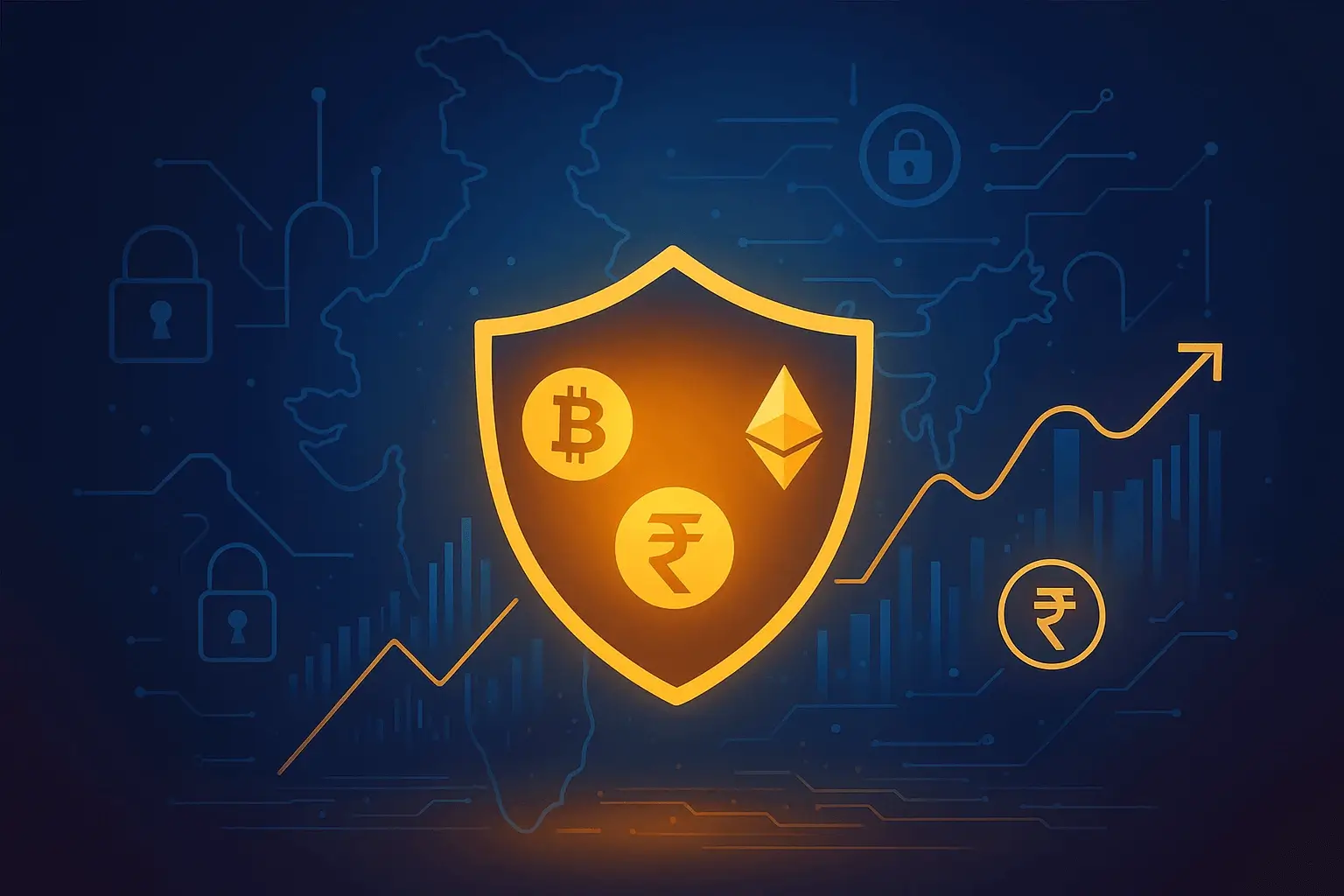
up to $2000
Thinking about investing in crypto from India? You're not alone.The potential for high returns attracts thousands of new investors every month. But let’s be honest—the first question on everyone’s mind is: is it safe to invest in cryptocurrency?
It’s a fair concern. The crypto market moves fast — prices rise and fall overnight, and the rules seem to change every few months. So, is cryptocurrency safe to invest in India? In this guide, we’ll cut through the noise and break down the real safety situation — what’s risky, what’s worth it, and how to safely invest in cryptocurrency in India without losing your hard earned money.


up to $2000

up to $1100

$1500 in 5 Hours

Make $950 To $2200 Daily

$50 sign-up bonus

100%

100%

10%

$30 sign-up bonus
India’s relationship with crypto has been nothing short of dramatic. We've gone from a 2018 RBI banking ban to a landmark 2020 Supreme Court ruling that overturned it. That decision opened the door for the market we see today, a market that is cautious, but active.
Today, cryptocurrency exists in a legal grey zone. It’s not illegal, but it’s not legal tender either. The government's most significant move has been to tax it, treating crypto as Virtual Digital Assets (VDAs), a sign that it’s officially recognized as an investable asset class.
India hasn’t rolled out a single, comprehensive law for crypto yet, but here’s where things stand in 2025:
In short you can invest, but don’t expect the same investor protections you get with regulated products like mutual funds or stocks.
Let's be blunt: investing in crypto is high-risk. In India, those risks are compounded. You must understand these threats before you invest a single rupee.
Crypto is wild. A coin can jump 30% one day and crash 50% the next. If you’re asking “Is it safe to invest in cryptocurrency now?”, the honest answer is: only if you can handle extreme market swings.
The current rules are not set in stone. The government could introduce new restrictions or even change its fundamental stance. Any negative rumor can cause market-wide panic, crashing prices. This is a political risk that you cannot control.
The crypto world is full of bad actors. Your investment is only as safe as your personal security.
This is critical. If your bank fails, your deposits are insured by the DICGC up to ₹5 lakh. If your stockbroker commits fraud, SEBI has mechanisms to help. In crypto, there is no such safety net. If an exchange goes bankrupt or your funds are stolen, you have almost no legal recourse to get your money back.
Crypto is technically complex. A simple, irreversible mistake can cost you everything.
Send crypto to the wrong wallet address or blockchain, and it’s gone permanently. No support tickets. No undo button.
Despite the serious risks, millions of Indians are investing. Here’s why:
Now let’s get practical. Here's your step-by-step playbook for investing securely.
This is the golden rule. Never, ever invest based on a tweet, a WhatsApp tip, or a celebrity endorsement.
This is the most important rule of all. Do not use your emergency fund. Do not use money you need for rent or bills. Treat crypto as your highest-risk investment. This will save you from making emotional, panic-driven decisions.
Your exchange is your gateway to the market. Its security is paramount.
Here are some reputable exchanges available to Indian users:
| Exchange Name | Key Security Features | Compliance Efforts | Strengths for Indian Users |
|---|---|---|---|
| Bybit | 2FA, Cold Storage, Proof-of-Reserves | Global compliance, KYC/AML | Advanced trading features, high liquidity, wide range of assets |
| WazirX | 2FA, KYC/AML | FIU-Compliant (India) | Simple INR deposits/withdrawals, user-friendly for beginners |
| CoinDCX | 2FA, KYC/AML, Insurance fund (limited) | FIU-Compliant (India) | Focus on user education, wide range of assets |
Get a bonus for registering on Bybit
Explore other secure platforms

up to $2000

up to $1100

$1500 in 5 Hours

Make $950 To $2200 Daily

$50 sign-up bonus

100%

100%

10%

$30 sign-up bonus
Remember this phrase: "Not your keys, not your crypto." If you leave your coins on an exchange, you are trusting them. For any serious amount of money, a personal wallet is a must.
| Wallet Type | What It Is | Best For | Security Level |
|---|---|---|---|
| Hot Wallet (Exchange) | Your account on an exchange like Bybit or WazirX. | Beginners, small amounts, active trading. | Medium: Convenient but controlled by a third party. Vulnerable to exchange hacks. |
| Software Wallet (Hot) | A mobile app or desktop program (e.g., MetaMask, Trust Wallet). | Intermediate users, interacting with DeFi/NFTs. | High: You control your own "private keys." Vulnerable if your device is hacked. |
| Hardware Wallet (Cold) | A physical device (like a USB) from Ledger or Trezor. | Long-term investors, large amounts. | Highest: Keys are stored offline. Impossible for online hackers to access. |
Being "safe" also means being legally and financially safe. India's tax rules are brutal and can destroy your profits if you're not careful.
You must keep detailed records of every single transaction.
Yes, but only if you understand the risks and invest responsibly. The market is legal but not regulated like stocks.
Safer than before, thanks to FIU compliance, but volatility and scams still make it risky for uninformed investors.
Bitcoin and Ethereum remain the most reliable. Avoid unknown coins promising “guaranteed returns.”
Use verified, FIU-registered exchanges, store assets in hardware wallets, and never invest more than you can lose.
Yes. A 30% tax on gains and 1% TDS on trades — no exceptions.
So, is it safe to invest in cryptocurrency in India? The truth is it depends entirely on you.Crypto isn’t a guaranteed way to get rich, but with proper research, secure practices, and legal compliance, you can invest wisely and minimize risks. At CryptoInvestIndia, we believe the safest investment is an informed one. Learn continuously, use the right tools, and invest responsibly because in this market, education is your best security.